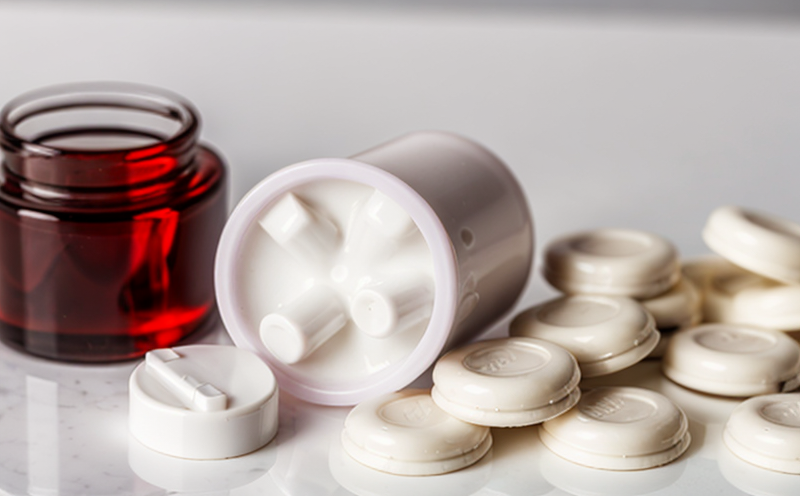Viscosity of Topical Preparations Test
The Viscosity of Topical Preparations Test is a critical procedure within pharmaceutical testing, specifically tailored to evaluate the consistency and flow properties of topical preparations. This test ensures that medications are suitable for their intended application, whether it's a cream, gel, or ointment. The measurement of viscosity helps in determining the ease with which the product can be applied to the skin or mucous membranes, affecting both efficacy and patient compliance.
Viscosity is defined as the resistance of a fluid to gradual deformation by shear stress in the moving parts of a system. In pharmaceutical testing, it plays a crucial role because the texture of topical preparations directly impacts how they interact with the skin. A product that is too thick may be difficult to apply, while one that is too thin might not provide the necessary therapeutic benefits.
The Viscosity of Topical Preparations Test typically involves measuring the shear stress and strain rate using a viscometer. This instrument applies a known force to a sample and measures its resistance to flow. The most common methods for this test include rotational viscometry and capillary flow viscometry.
Rotational viscometers are widely used in pharmaceutical testing due to their accuracy and versatility. They consist of a rotating spindle that is dipped into the sample, which is held stationary in a cylindrical container. The torque required to rotate the spindle at a constant speed provides a direct measurement of the viscosity. Capillary flow viscometers measure the time it takes for a specific volume of liquid to flow through a capillary tube under gravity.
For pharmaceutical applications, the temperature and shear rate are critical parameters that influence the test results. Pharmaceutical products often have complex rheological properties, meaning their behavior can change with temperature and strain rate. Therefore, these factors must be carefully controlled during testing to ensure accurate measurements.
The accepted standard for performing this test is ISO 8902:1996, which provides detailed guidance on the equipment, procedures, and interpretation of results. Compliance with international standards ensures that the test results are reliable and can be compared across different laboratories worldwide.
Proper specimen preparation is essential for accurate viscosity testing. The sample should be prepared according to the specific requirements outlined in ISO 8902:1996. This may include homogenizing the product, adjusting its temperature to the required test conditions, and ensuring that it is free from air bubbles or other contaminants.
The results of the viscosity test are typically reported as a single value or as a range, depending on the nature of the sample and the testing method used. The report should also include information about the temperature at which the measurement was taken, the type of viscometer used, and any other relevant parameters that may affect the result.
The importance of this test extends beyond just ensuring product quality. It can also provide valuable insights into the formulation process. By understanding how changes in ingredients or processing conditions affect viscosity, developers can optimize their formulations to achieve the desired texture and application properties.
In summary, the Viscosity of Topical Preparations Test is a fundamental component of pharmaceutical testing that ensures product quality and patient safety. Its role in determining the suitability of topical preparations for their intended use cannot be overstated.
Industry Applications
Increased accuracy in formulation development, ensuring consistent texture and application properties.
Easier quality control and compliance with international standards such as ISO 8902:1996.
Better patient satisfaction by providing products that are easy to apply and effective.
Optimization of manufacturing processes, leading to cost-effective production methods.
Enhanced safety assessments by identifying potential issues with product application.
Improved R&D capabilities for pharmaceutical companies, enabling them to innovate more effectively.
Eurolab Advantages
Eurolab offers unparalleled expertise in the field of pharmaceutical testing. Our team of highly qualified professionals ensures that every test is conducted with precision and reliability. We use state-of-the-art equipment, including the most advanced viscometers available, to provide accurate and consistent results.
Our comprehensive approach to quality management guarantees that all tests meet or exceed international standards. This commitment to excellence allows us to deliver reliable data that can be trusted by regulatory bodies worldwide. Whether you need routine testing or one-off assessments, Eurolab provides the highest level of service and support.
We also offer a range of additional services designed to assist pharmaceutical companies in their quality assurance processes. These include formulation development, stability studies, and packaging compatibility tests. By leveraging our expertise across various areas of pharmaceutical testing, we ensure that your products meet the highest standards of safety and efficacy.
International Acceptance and Recognition
The Viscosity of Topical Preparations Test is widely recognized and accepted in the pharmaceutical industry. Compliance with international standards such as ISO 8902:1996 ensures that the test results are valid and can be trusted by regulatory authorities worldwide.
Many countries have adopted these standards, meaning that testing conducted at Eurolab will meet the requirements of multiple jurisdictions. This global acceptance simplifies compliance for pharmaceutical companies operating in different regions. By ensuring consistency across borders, we help our clients navigate the complexities of international regulations more easily.
The use of internationally recognized standards also enhances the reputation of pharmaceutical products. When a product is shown to meet these high standards, it gains credibility and trust among consumers and regulatory bodies alike. This can lead to increased market penetration and better patient outcomes.





